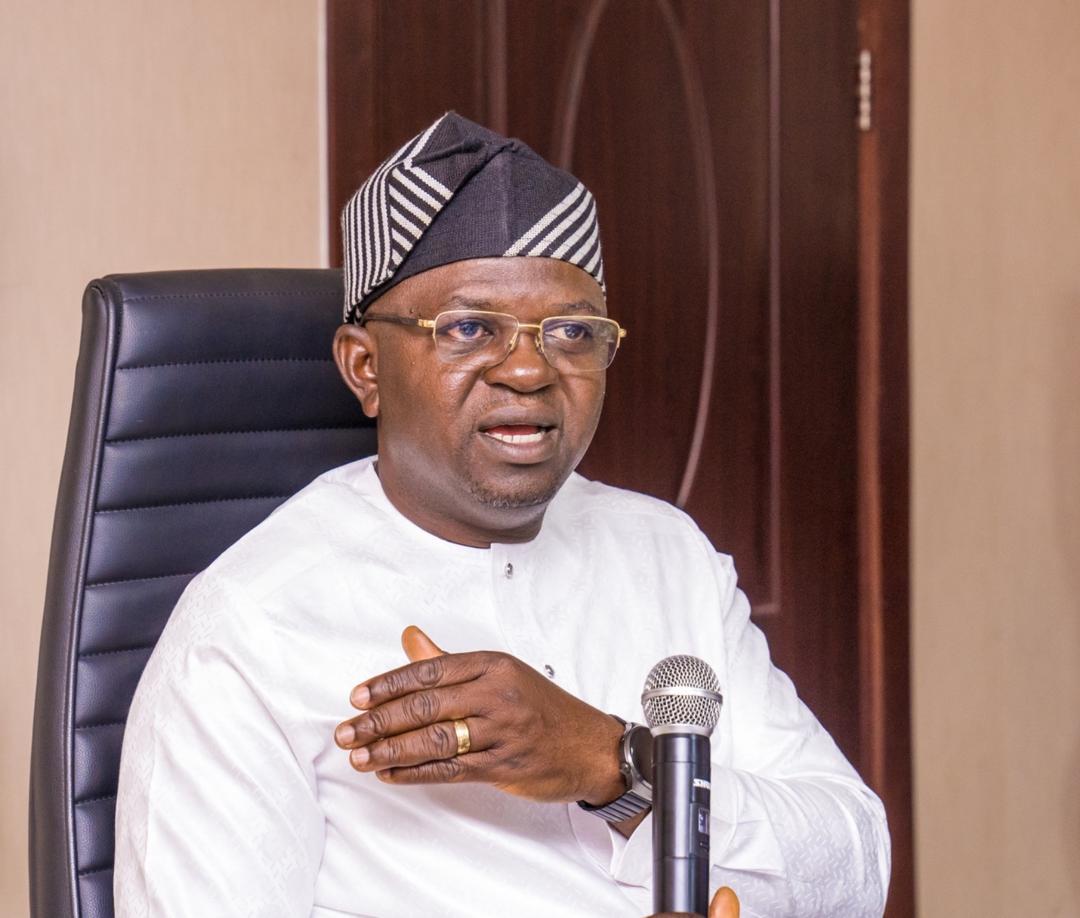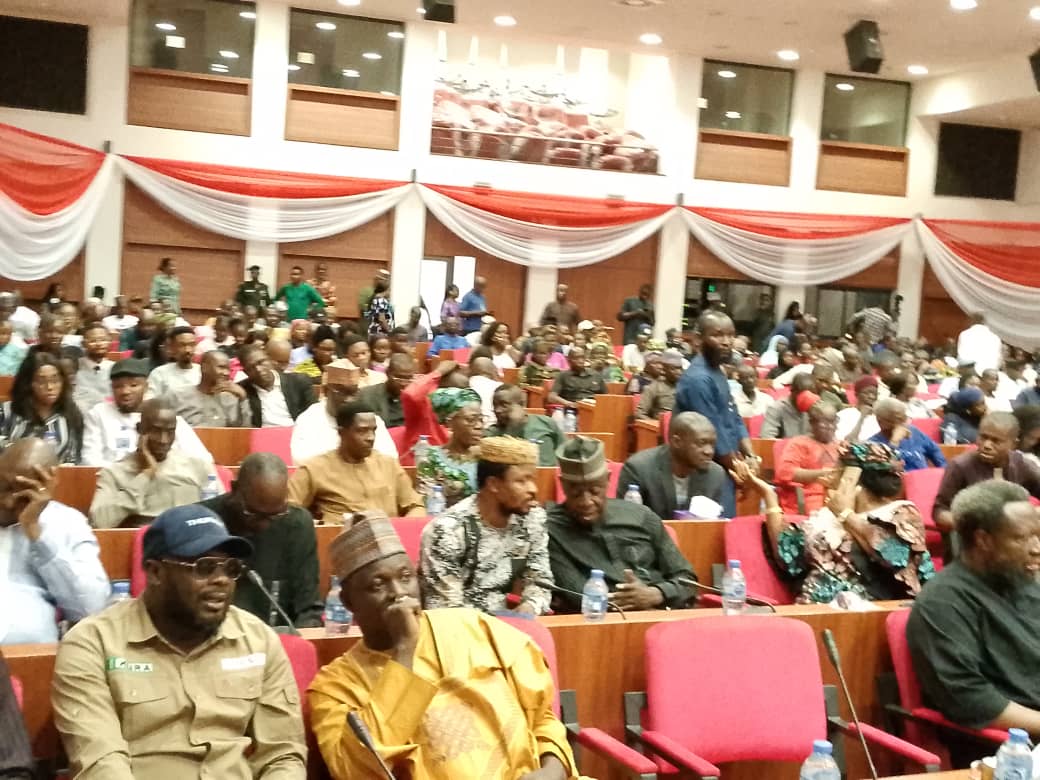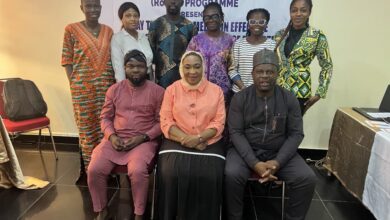2025 National Steel Summit: Tinubu Pledges Steel Sector Revival, Targets 10 Million liquid Tonnes Output, 500,000 Jobs, Zero Import Duty On Steel Plant Equipment
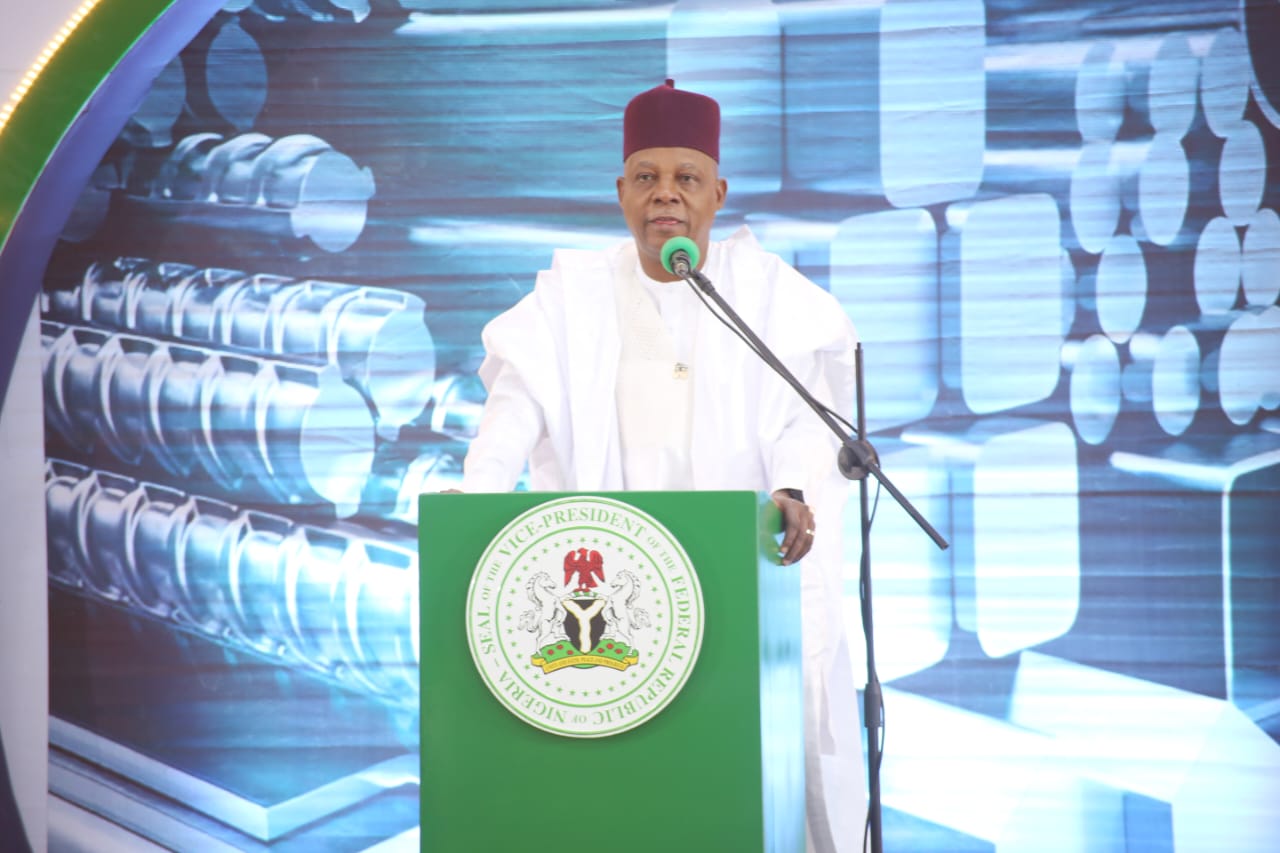
By Fatima Saka
The Federal Government has unveiled an ambitious plan to transform Nigeria into a regional steel powerhouse, targeting the production of 10 million tonnes of liquid steel annually and the creation of over 500,000 jobs by 2030.
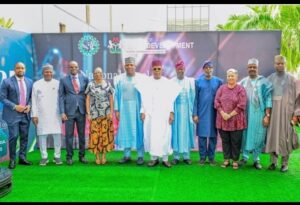
The President of Nigeria, Bola Ahmed Tinubu who was represented by the Vice President Kashim Shettima made the declaration at the Inaugural National Steel Summit on Wednesday in Abuja, describing the revival of the steel sector as a “national mission” and a cornerstone for industrialization, economic diversification, and national security.
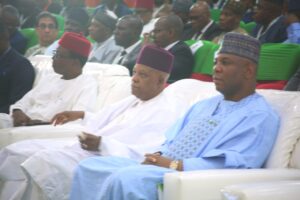
Revolving around the theme: Rebuilding and Consolidating Nigeria’s Steel Industry: Collaborative Action for Sustainable Growth and Global Competitiveness.
While delivering his Keynote address, Shettima stressed that the completion and commissioning of the Ajaokuta Steel Company and the National Iron Ore Mining Company remain top priorities for the administration. Key initiatives include ongoing technical and financial audits of Ajaokuta, a $500 million mini-LNG project in Kogi State, partnerships with the Defence Industries Corporation of Nigeria to produce military hardware locally, revival plans for the Aluminium Smelter Company of Nigeria (ALSCON), and the development of an Ajaokuta Industrial Park with a free trade zone.
He also announced incentives such as zero import duty on steel plant equipment, tax holidays, and capital allowances to attract investors.
Shettima emphasised that the steel industry’s success would require active collaboration between government, private investors, academia, and skilled workers, declaring: “We will rethink, retool, and revitalize Nigeria’s steel sector to secure our industrial future, This is not merely an economic agenda, it is a national mission”.
“The backbone of any industrialised nation” and warned that continued dependence on steel imports, currently over 90% of domestic consumption, poses economic and security risks,” he stressed.
Speaking on the Major Projects and Milestones, the Vice President highlighted that the Federal Government is prioritising the completion and commissioning of the Ajaokuta Steel Company and National Iron Ore Mining Company, Itakpe, with a comprehensive technical and financial audit already underway. Other initiatives include:
$500m Mini-LNG Plants in Kogi State: Groundbreaking held in January 2025 to support industrial energy needs.
Military Hardware Production: MoU with the Defence Industries Corporation of Nigeria to manufacture rifles, vests, helmets, and bullets at Ajaokuta’s engineering workshops.
Ajaokuta Industrial Park: Planned free trade zone and gas park to attract manufacturing investments, including a military-industrial complex.
Revival of ALSCON: Negotiations to resolve legal and operational bottlenecks, with a proposed $465m investment over six years.
$400m Stellar Steel Project: New hot-rolled coil and plate plant in Ogun State to reduce imports, set for completion in April 2026.
Scrap Aggregation Programme: Six-zone collection network to supply steel producers and curb infrastructure vandalism.
“From the mines of Kogi to the ports of Lagos, let us rise to this moment together and forge a nation as strong and enduring as the steel we will produce,” Shettima said.
Giving his opening address, Prince Shuaibu Abubakar Audu, Honourable Minister of Steel Development emphasised that the creation of the Ministry of Steel Development in August 2023 was a strategic move under Tinubu’s eight-point agenda to drive industrialisation, diversify the economy, and boost GDP to $1 trillion by 2030.
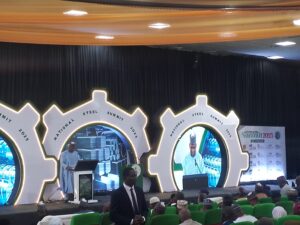
Speaking on the Policy and Regulatory Reforms, the minister highlighted the ongoing reforms include: “Review of the 2008 Metals Policy and creation of a sectoral roadmap with World Bank support.
“Legislative action on the Metallurgical Industry Bill, National Metallurgical Training Institute Establishment Bill, and amendments to the National Steel Council Act.
“Strengthening agencies like the National Steel Raw Materials Exploration Agency, which has identified 12 iron ore deposits nationwide.”
He also highlighted the attraction of foreign and local investors, the FG has introduced incentives on Zero import duty on mining and steel plant equipment. Three to five years’ tax holidays. Capital allowances up to 95% of qualifying expenditure, and Guaranteed expatriate quotas and foreign currency remittance rights.
Prince Audu stressed that a strong domestic steel industry is critical for infrastructure, housing, transportation, defence, and manufacturing. Audu noted that commissioning Ajaokuta and Delta Steel alone would require eight million tonnes of raw materials annually, creating opportunities for mining communities and related industries.
He urged private investors, universities, skilled workers, and local communities to join in building a resilient steel sector, citing the African Continental Free Trade Agreement and Nigeria’s vast raw material reserves as competitive advantages.
According to the Minister of Steel that the two-day summit is expected to produce actionable recommendations on reviving legacy steel projects, improving logistics and energy access, attracting investments, developing local raw materials, and aligning education with industry needs.
“With the government’s blueprint, supportive legislation, and multi-billion-dollar investments already in motion, officials say Nigeria is now positioned to end decades of stalled steel ambitions and finally unlock the sector’s full potential,” he added.
Dr. Henry Dele Alake, Minister of Solid Minerals Development, Dr. Henry Dele Alake emphasized the importance of the summit’s theme:“Rebuilding and Consolidating Nigeria’s Steel Industry Through Collaborative Action for Sustainable Growth and Global Competitiveness.” He noted that this first-ever steel sector summit is both timely and necessary, reflecting a collective recognition that Nigeria’s steel industry must move from mere recognition to strength, from retention to productivity, and from isolation to global relevance.
“The time for Nigeria to rise as a key player in the global steel industry is now, not tomorrow,” he said.
Dr. Alake pointed out that over the past two decades, global demand for steel has surged, with China rising to the top as the leading producer, followed by Japan, Russia, and the United States. He stressed that steel is indispensable to any nation’s development, powering industrialization, defence capabilities, infrastructure, and manufacturing.
“Without a robust domestic steel industry, there can be no large-scale infrastructure development, no defence readiness, and no sustained manufacturing growth,” he stated.
He lamented that despite Nigeria’s abundant reserves of iron ore, coal, limestone, and skilled labour, the country still spends over $4.5 billion annually importing steel, an economic paradox that must be reversed.
“Our goal is to position Nigeria as the steel core of West Africa, anchored on sustainable local practices and strong public-private partnerships,” Dr. Alake declared. He explained that the Ministry of Solid Minerals is deliberately aligning its reforms to support the Ministry of Steel Development, recognising that the steel value chain begins with mining.
He cited the ministry’s collaboration with African Industries Group, developers of state-of-the-art steel plants in Sagamu and Kaduna, as an example of how mining policies and steel manufacturing can be effectively linked.
Dr. Alake reaffirmed his commitment to ending the “wasteful cycle of resource extraction without national benefit” and pledged to build a solid mineral sector that works for Nigerians through sweeping reforms, local value addition, and investor-friendly policies.
Sa’idu Ahmed Alkali, Minister of Transportation, expressed delight at being part of the summit, describing it as “timely” given the government’s ongoing reforms across all sectors. He said the event offers an enabling environment to discuss the operationalisation of the 10-year National Steel Roadmap, which targets an annual production capacity of 10 million tonnes.
He emphasized that the summit’s outcomes must address post-privatisation challenges that have hindered optimal performance in Nigeria’s steel companies. Alkali expressed optimism that relevant policies, such as the Nigerian Minerals and Mining Act and the modern Mining Cadastre System, would provide the framework for repositioning the industry.
He commended the Honourable Minister of Steel Development for hosting the event, stressing that effective utilisation of private rolling mills and natural resources would sustain the vibrancy of Nigeria’s mining and steel industries.
Dr. Doris Uzoka-Anite, Minister of Industry, Trade and Investment, underscored that the summit lays “fresh foundations for a globally competitive steel industry in Nigeria.” She noted that the steel sector is central to the nation’s industrialisation ambitions, with potential across the value chain—from upstream mining to downstream fabrication, construction, automotive manufacturing, energy, and other industries.
She called for leveraging strong international partnerships, enforcing quality standards, and accelerating domestic capacity development. “In line with the Nigeria First initiative and the Renewed Hope Agenda, we are committed to industrialisation, manufacturing growth, and innovation to ensure that resources and value, added products remain in Nigeria,” she said.
READ ALSO: ASUU Rejects FG’s N10m Loan Offer, Demands Salary Review, Payment of Withheld Wages
Speaking on, Senator Patrick Chukwuba Ndubueze, Chairman, Senate Committee on Steel Development, described the summit’s theme as capturing “the very essence” of Nigeria’s industrial policy. He stressed that the revival of the steel sector is key to transforming the nation’s economy and highlighted his legislative push for greater use of Nigerian-made vehicles in public service, which would stimulate demand for locally-produced steel.
He called for a review of the Ajaokuta Steel Complex, suggesting selective concessioning to capable Nigerian or credible foreign operators rather than wholesale sales that in the past deprived the country of income.
Senator Ndubueze also proposed the creation of government-supervised scrap collection and recycling centres nationwide to prevent vandalism of public infrastructure and promote sustainable steel production. He assured the summit of the Senate’s support for enabling legislation, investment attraction, and job creation in the sector.
Earlier, in his welcome remarks, Dr. Chris Osa Isokpunwu, Permanent Secretary, Ministry of Steel Development, described the summit as “a strategic platform to chart a new course for Nigeria’s steel sector,” which he said is vital to industrialisation, infrastructure development, and economic diversification.
He noted that despite Nigeria’s vast mineral endowments, the steel industry has remained underdeveloped. The summit, he said, is an opportunity to rethink and reignite the nation’s steel ambitions through candid dialogue among policymakers, investors, industry leaders, and development partners.
READ ALSO: FG Withdraws Airport Misconduct Charges Against Comfort Emmanson, KWAM 1, Lift’s Lifetime Flight Ban
NBA Condemns Ibom Air Over ‘Dehumanising’ Treatment on Ms. Emmanson, Demands Lifetime Ban Withdrawal
Dr. Isokpunwu outlined the ministry’s ambitions to:”Create an enabling environment for large and small-scale steel production, Strengthen local value chains from mining to finished steel, Open new opportunities for jobs, skills, and exports, and Promote transparency, accountability, and innovation.”
He further added that the summit’s deliberations would contribute to a National Strategic Plan of Action for the Steel and Metallurgical Sector, serving as a blueprint to guide infrastructure development, sustainable investment, and Nigeria’s global competitiveness in steel production.


